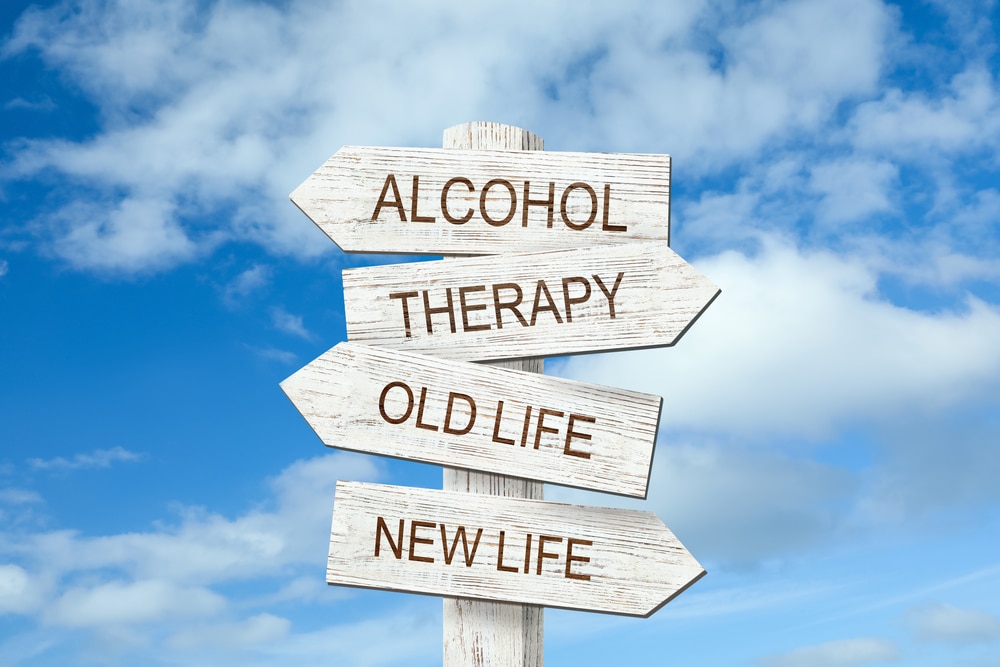Drinking alcohol represents celebration, culture, part of socialization, and everyday life. While this may be the case, and having one or two beers, liquor, or glasses of wine is normal, drinking too much alcohol can not only make you drunk and lower your inhibitions, but it can also cause brain damage and severe harm to your body that results in a host of health complications.
Side effects from drinking can last long-term since it takes a while for a drug such as alcohol to leave a person’s system. A common question people ask is, how long does alcohol stay in your system? Well, it depends. Various factors can affect your BAC and how you react to alcohol. These include the following:
- Gender
- Weight
- Height
- Drinking alcohol on an empty stomach
- Taking medications
- Pre-existing health problems or diseases (Cirrhosis – Liver disease)
- How many drinks you consume in a short period of time (binge drinking)
To fully understand how alcohol affects the body and the length of time it stays in someone’s system, one must understand the notions above, and how the depressant is absorbed and metabolized. Alcohol affects people and their tolerance levels differently. Thus, the timeline for the development of alcohol dependency and addiction also varies from person to person.

What Affects How the Body Absorbs and Metabolizes Alcohol?
As mentioned above, numerous factors including your gender, weight, and height can all affect how long alcohol stays in your system. How your body absorbs and processes alcohol is either biological or physiological.
Gender
There are gender differences in how alcohol is metabolized. It’s statistically true that women absorb and digest alcohol differently than men. This is because women hold less amount of water in their bodies than men do and retain more fat. As a result, having less water causes substances like alcohol to be less diluted when entering the body. Thus, women obtain a higher blood alcohol concentration (BAC) after consuming the same amount of alcohol as men of the same weight.
The amount of time that alcohol is detected in a person’s blood after consuming beverages is different from the time it takes to be detected in their urine. The way the female and male body absorbs and metabolizes alcohol differs from one another due to two main reasons.
- Alcohol Dehydrogenase (ADH) and Acetaldehyde Dehydrogenase Levels
The amount of alcohol dehydrogenase (ADH) and acetaldehyde dehydrogenase that they each have. These are the enzymes that metabolize alcohol. Men have much more ADH and acetaldehyde dehydrogenase in their stomach and liver than women do. Therefore, although the volume of the female liver is bigger and metabolizes alcohol at a quicker pace, the male body is much more efficient at digesting alcohol. As a result, a man’s BAC levels will be lower as they absorb less alcohol into the bloodstream during the metabolization process.
- The Liver
The female body rids itself of alcohol from the bloodstream quicker than the male body does. This is because women have a higher liver volume, which allows the organ to absorb most of the alcohol that enters their system. If someone drinks too much, too often, that person can develop liver disease, otherwise known as Cirrhosis.
Weight
A person who weighs more has a lower BAC after consuming the same amount of alcohol as those who weigh less. Individuals who consume alcohol also have significantly higher Body Mass Indexes (BMI) and prevalence of obesity than those who don’t.
Height
A person’s height affects his or her weight. Taller people tend to have lower blood alcohol levels after consuming the same amount of alcohol as shorter people.
Medications
There is always a list of side effects that can come from taking medications. Drinking is no different.
There is a reason why they warn people to not take their medications with alcohol. This is because certain medications can cause liver complications when taken with alcohol. As a result, people that do medicate while drinking will get a higher BAC much quicker than they normally would without taking medications.
The combination of alcohol and medications can cause people to become intoxicated at a quicker rate, or worse, overdose on alcohol altogether. Therefore, before drinking, make sure that it is safe to do so when taking your medications.
Even over-the-counter medications such as Tylenol can have adverse effects on the liver when taken while drinking alcohol. Thus, it’s always best to consult a medical professional about the safety of drinking alcohol while taking your prescription medications.
Eating Food
If you drink alcohol on an empty stomach, it will absorb much quicker than it would if you were to have eaten something before drinking. As a result, you’ll become intoxicated more quickly on an empty stomach than you would on a full stomach. This also means that you should eat before you drink to avoid feeling nauseous and getting sick. Eating high-protein foods before and during drinking will decrease your chances of getting drunk.
Number of Drinks Consumed Per Hour
Research states that the liver within a man’s body can metabolize around 1 standard drink per hour. As a result, the number of drinks that you consume within one hour will affect your blood alcohol levels and how drunk you get. If you drink 5 drinks within one hour, you will get much drunker than if you were to drink 5 drinks over the course of the whole day.
What is Alcohol?
Alcohol is a type of drug classified as a depressant. These substances are known to affect the central nervous system (CNS) by slowing down the messages between the brain and the body. As a result, a person’s level of alertness, arousal, and stimulation is reduced.
Alcohol not only lessens an individual’s inhibitions, but it also affects coordination, concentration, and decision making. The ability to be able to respond effectively to situations is slowed. This is why speech becomes slurred, and reaction times become slow when you consume too much alcohol.
While small doses of wine, beer, or liquor can make a person feel relaxed and loose like a stimulant does, larger doses and binge drinking can cause drunkenness, drowsiness, vomiting, unconsciousness, overdose, and even death if not careful.
Alcohol has a shorter lifespan in the body than other drugs. Once alcohol enters a person’s bloodstream, the body begins to metabolize/absorb it at a slow rate of 20 milligrams per deciliter (mg/dL) per hour. For example, if your blood alcohol level was 40mg/dL, it would take about two hours for it to be completely gone from your system.
Again, how long it takes for alcohol to metabolize in the body and the side effects produced ultimately depends on the amount of alcohol consumed and the period of time at which alcohol is consumed.
How is Alcohol Metabolized Within the Body?
Before we know how long alcohol stays in the system, it’s important to know how it’s digested and absorbed. When someone consumes an alcoholic beverage, it first enters the digestive system, as other food and drinks do.
However, alcohol is not digested like other foods and drinks are. An estimated 20% of alcohol from one drink goes directly into the blood vessels, to the brain, while the remaining 80% goes through the small intestine and absorbs into the bloodstream. The final step in the cycle of alcohol metabolizing is the liver ridding its toxins from the body. Health complications, especially with the liver, including liver disease (Cirrhosis), can slow down the body’s natural way of detoxing.

Alcohol’s Effect and How Long Does Alcohol Stay In Your System
The main question is, how long does alcohol stay in your system? Truth is, as mentioned before, it depends. It’s important to know how much alcohol concentration is in your drink and how that will affect you short-term and long-term.
For example, some beers have a higher alcohol content than what’s usually stated on the can or bottle. This is the cue to how much alcohol you’re consuming from one drink to another. It takes an average of 15-45 minutes for the effects of alcohol to start kicking in for people who are healthy.
Those with little to no tolerance for alcohol can begin to exhibit symptoms of intoxication if their blood alcohol concentration (BAC) level reaches 0.05%. This level is potentially fatal and can make someone overdose. Any BAC above 0.5% is extremely dangerous and fatal.
For example, it takes at least four drinks for an average 170-pound male to exceed 0.05 BAC in 2 hours on an empty stomach, while it takes three drinks for a 137-pound female and 4 drinks within an hour for a woman who weighs 150lbs. This would bring the woman’s BAC to 0.01%.
0.01% BAC can be reached easily by drinking one 12-oz beer. Again, determining how long it takes to metabolize your alcohol depends on who you are and various characteristics.
Below are estimates of how long it takes to absorb different alcoholic beverages. It is important to note that these times will vary depending on the percentage of alcohol in the drink:
Type of Alcohol
- Small shot of liquor
- Pint of beer
- Large glass of wine
- A few drinks
Average time Alcohol Will Stay in Your System
- 1 hour
- 2 hours
- 3 hours
- Several hours
The amount of time that alcohol stays in your body’s system depends on what body part you’re talking about. In reference to this topic, the liver is probably the most common organ associated with drinking. As a result, alcohol can stay in your body’s system for anywhere from half a day to a few months. Below are some statistics to demonstrate the effect alcohol can have on the brain and body.
How Long Does Alcohol Stay in Your Blood?
Alcohol stays in your blood for up to 6 hours after consuming it.
How Long Does Alcohol Stay in Your Urine?
Alcohol remains in your urine for around 12-24 hours after you drink it.
How Long Does Alcohol Stay on Your Breath?
It takes 12-24 hours for alcohol to leave your breath after you drink it, despite brushing your teeth.
How Long Does Alcohol Stay in Your Saliva?
You can still detect alcohol in your saliva for up to 12-24 hours after consuming it.
How Long Does Alcohol’s Stench Stay in Your Hair?
Believe it or not, alcohol can stay in your hair for up to 90 days after consumption.
Blood Alcohol Concentration (BAC) Levels
As your blood alcohol levels increase past a certain point, your body can begin to shut down. The organs and functions that you will impair once reaching certain blood alcohol levels is demonstrated below.
• 0.6% – 0.15% BAC: Your speech, memory, attention, coordination, and balance are moderately impaired at this point. Your driving is significantly impaired at this BAC.
• 16% – 0.30% BAC: At this BAC your speech, memory, attention, balance, reaction time, and coordination are significantly impaired. Your driving ability at this BAC is dangerously impaired. Judgment and decision-making are also impaired when your BAC is within this range. Within this range of BAC, you also risk vomiting, having blackouts, and having a loss of consciousness.
• 31% – 0.45% BAC: If your blood alcohol level is within this range, you are risking overdosing and worse, death as your breathing has becomes suppressed, along with a rapid heart rate, and extreme body temperature.
Alcohol Intoxication, Alcohol Poisoning, and Overdose
The symptoms of alcohol intoxication include slurred speech, lowered inhibitions, discoordination, confusion, poor memory, trouble concentrating, and respiratory problems. If not careful, being intoxicated can lead to alcohol poisoning. Alcohol poisoning kills 6 people in the United States every day. A total of 2,200 Americans also die from alcohol poisoning each year, This equates to 3 in 4 deaths for adults ages 35 to 64, the highest being among people 45- 54 years old.
The signs of an alcohol overdose to recognize, include vomiting due to alcohol poisoning, pain, unconsciousness, coma, or even death if professional help is not received. The symptoms that you are likely to develop after overdosing on alcohol vary depending on how much you drank, and if you had other substances such as prescription drugs (opioids) in your system.
If the statistics above aren’t alarming enough, according to the Centers for Disease Control (CDC), more than 88,000 people die due to alcohol-related incidences, including car accidents, injury, overdose, and suicide in the United States.
The point is, drinking large amounts of alcohol is detrimental to your health, and despite the consequences, some people are unable to control how much they drink or can’t stop drinking in general. If that’s the case for you, professional help is necessary to recover and live a high-quality life.
Behavioral Health Centers is Here to Help You Recover
If you are or a loved one is continuously consuming too much alcohol for your body’s system, you may suffer from alcohol addiction. To treat alcohol addiction, you should attend rehab. There are certain steps you can take to help reduce the withdrawal symptoms that result from substance abuse in the meantime though. The main one is receiving professional help at a treatment center.
At Behavioral Health Centers, our team offers high-quality treatment programs and services for addiction and mental health, such as detox and addiction therapy/counseling, as well as, providing resources for people that suffer from alcohol use disorder (AUD). With our alcohol addiction treatment services, you will likely overcome your alcohol addiction and lead to a healthier and well-balanced lifestyle. Learn more about how long alcohol stays in your system, in our alcohol detox program. To learn more about the other addiction treatment services that we offer, contact us today.
References:
https://pubs.niaaa.nih.gov/publications/aa46.htm
Get Help Today
Don’t go through the process of recovery alone. There are people who can help you with the struggle you’re facing. Get in touch with one today.
Recent Posts

How Does Alcoholism Run in Families?
How does alcoholism run in families? Alcoholism, or alcohol use disorder (AUD), is a chronic disease that significantly impacts many

The Three Phases of Alcoholism
Alcoholism, a chronic disease characterized by the inability to control or stop drinking alcohol despite adverse social, occupational, or health

Understanding Inpatient vs. Outpatient Mental Health Treatment: What’s Best for You?
Choosing the right mental health treatment option is pivotal for anyone embarking on their mental health journey. The difference between





